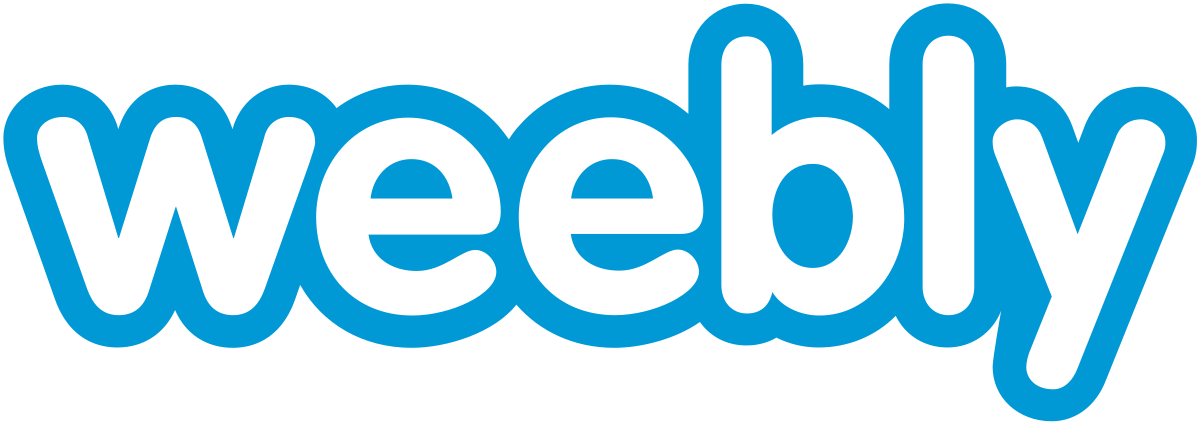Do you want to host your blog but don’t have money to pay for the services? Well, a free blog hosting site can be an ideal option. Free blog hosting platforms do not charge a fee for these services making them a good option if you are a beginner or do not have the budget of paying for the hosting services.
Also, using a free blog hosting platform does not require you to have much technical knowledge. There are many sites where you can host your blog for free. However, not all are worth your try. Continue reading this comprehensive guide to learn everything you need to know about free blog hosting sites, from their importance and the best ones you can consider to some of the frequently asked questions.
What is the purpose of a blog hosting site?
A good blog hosting platform lends an array of services to a blogger. It is good to know that you need a great blog hosting platform to really establish your blog.
The hosting site’s role is to store your files, website code, and data on a server. These companies will further ensure your site data remain safe, encrypted, monitored, and cared for by a highly trained support team. As a blogger, you are relieved of many responsibilities when your details are secure. That way, you can concentrate on building better content.
A hosting blog site also plays a crucial role in ensuring your blog site remains running at a speed that accommodates traffic. This action enables your site to remain visible and accessible to anyone out there.
Furthermore, hosting platforms ensure your blog site has a fast load time. Google recommends that a good blog site should have a load time that is less than 3 seconds. However, most web hosting firms have a current load time of 22 seconds. As a result, when your site has a higher load time, it reduces your bounce rate and increases your visitor engagement.
Our favourites
1. WordPress (self-hosted)
 Whether you are a newbie or an experienced blogger, WordPress can be the right fit. This web hosting platform is a king of free blogging sites, and is tailor-made for bloggers. The site comes with a built-in feature that lets you customize your platform with ease. | Our Expert Rating: Major Perks
|
2. WIX

| Our Expert Rating: Major Perks
|
3. Weebly
 Weebly sits amongst the best and most popular free blogging sites. Whether a new or experienced blogger, you will love the site because of its user-friendly design that focuses on online business. Also, the site has a drag-and-drop option feature based on a WYSIWYG page builder. | Our Expert Rating: Major Perks
|
4. Ghost
 Ghost is one of the best free blog hosting sites you can consider. The site is an open-source blogging platform that is completely free to download and use. Ghost started its operation as a publishing platform intending to offer a great experience for content management. This site has website management features that enable a blogger to create custom-branded platforms consisting of static pages and blog post feeds.
| Our Expert Rating: Major Perks
|
5. Medium
 Medium is a reputable blogging and web publishing site. They allow you to publish your work on your own or submit it to other publications. The site is user-friendly, and thousands of users flock to it to share their thoughts and stories. The site makes life simple for bloggers with its content management system. This feature helps a blogger to add their word and use their photo, audio, and video to illustrate them. | Our Expert Rating: Major Perks
|
6. Blogger
 This amazing blog web-hosting site has been around for over two decades. The site boasts as the oldest blogging platform on the market today. The platform provides its user with a free subdomain that they can use to launch their site. | Our Expert Rating: Major Perks
|
7. Tumblr
 It is a popular free blog hosting site that hosts over 350 million blogs. The platform acts like social media platform where users can create their blog pages and follow those they like. For instance, when a blogger follows another site, they can read the comments on their work on their dashboard. When you set up your page on Tumblr, the process entails adhering to a simple content entry system. | Our Expert Rating: Major Perks
|
Do I need to use a blog hosting platform?
When creating a new blog, looking for a web hosting site is not optional. Without a hosting platform, your content, including articles, images, and pages, will remain on your pc, and nobody will have access to them online. That is why it’s best to create a blog with the help of a hosting platform.
Besides, this doesn’t mean you must purchase your hosting provider. There are many reputable free blogging platforms you can work with. That way, your audience will be able to see your content.
Nonetheless, a hosting platform enables an individual to write your domain name on their browser’s address bar and instantly view your blog site. It is good to note that not all free blog hosts that don’t allow you to monetise your blog. In addition, to run a successful blog, you need a great web host platform to help you maintain your server hardware, implement security protocols, and create backups for added security.
Are there paid options?
Yes, there are paid options for blog hosting platforms. A paid blog host will offer you a web server space that can enable them to go live online. Also, a paid blog hosting platform will offer its clientele a fast-loading time and at least 99% uptime. This action makes your visitor access your content as fast as possible.
Besides, with a paid hosting platform, expect a reliable security measure. Although some free blog hosting offers free SSL certificates, it is vital to look for plans that offer free sign-up incentives. Also, be ready to experience advanced customisation options, a feature that will help your blog site to look and feel good.
If you start with a free blog platform, ensure that the site offers upgrades or has the right features to support a well-established blog. It is good to check if the site has adequate storage to accommodate your content and high traffic. Avoid any provider who will meter traffic.
The majority of paid hosting platforms have monetisation options for your blog site. Whether you opt to display ads, sell your merchandise or carry out affiliate marketing, the site will offer an extension that will make monetisation possible.
Some of the best-paid blog hosting sites include Bluehost, GoDaddy, DreamHost, and SquareSpace, among others.
Disclaimer: Tech-Recipes partners with Bluehost and may earn commission should you make any purchases through this link. Our opinion, however, is based on independent research, testing and honest impressions.
How do I choose the perfect blog hosting site for me?
With tons of blog hosting sites, choosing the best is confusing but not impossible. There is a wide range of factors you should put into consideration when selecting your ideal blog hosting site. They include:
Security
A good blog hosting provider should guarantee the security of your website. It should provide basic security features even in its most basic plans. Check whether it offers free SSL certificates and provides consistent network monitoring. Moreover, a good blog hosting site should provide backups, DDOS prevention, CDN support, malware detection & removal, and many more.
Excellent reliability
When selecting your blog hosting site, consider one that will guarantee excellent reliability. A good host should provide an uptime guarantee with very minimal downtime. Choose a hosting blog site with an uptime guarantee of 99.9% or more.
Price
The cost is another essential factor when choosing your perfect blog hosting site. Choose a provider offering multiple plans at affordable plans. Even when starting with free blog hosting, make sure there are upgrade options and room to grow.
Easy to set up
This feature is vital if you don’t have much experience building a blog website. Choose a host that either has a one-click installer or one with a pre-installed WordPress.
Customer support
A good blog host should have phenomenal customer service. That will guarantee that if you encounter an issue while building your website, you will get help ASAP. Go for a provider that offers 24/7 support via multiple channels.
Pros & Cons of free blog hosting
Here are the pro and cons of free blog hosting
Pros
No cost
One of the key benefits of free blog hosting is that it does not charge anything. Therefore, it can be an ideal option when starting or working on a tight budget.
No commitments
In free blog hosting, you will not engage in any form of commitment. Unlike paid options, you will not need to commit to paying the subscription fees or be bound by a long contract.
It is suitable when you do not require high bandwidth
Free blog hosting generally comes with low bandwidth. Therefore, if you do not expect increased traffic on your website and don’t have any plans to grow and expand it, then free hosting will serve you right.
Ideal for learning the basics
If you are a beginner or a student who wants to learn about building a website or web design, you can do so without spending a penny using free web hosting.
Cons
No uptime guarantees
One of the downsides of a free blog host is that it usually does not guarantee uptime.
Display of ads
One of the annoying things about hosting your website with a free hosting provider is that it displays ads on your site. Since the platform offers the service for free, they earn through the ads to compensate for their costs. And because the adverts can clutter the site, it is not an ideal option for hosting a professional website.
Poor customer service
Unlike paid hosting, free blog hosts often offer poor customer support. Therefore, you can’t be assured of getting help when you need it when hosting is free. In fact, some of the free hosting providers do not offer customer support at all.
Others
Other cons include limited bandwidth, limitation of the number of website pages, limited features, and questionable security.
How do I start my own blog?
If you want to start your blog page from scratch, the process requires you to adhere to the following steps, and your site will be up and running.
Step 1
Choose the best blogging platform – look for the best platform to help you publish your content easily. Ensure the site will provide you with the necessary feature to help you analyse your platform and monetise the content.
Step 2
Have a unique niche – Narrow down your theme for a specific audience.
Step 3
Have a blog name and domain – Go for a descriptive name that portrays your reader’s interest
Step 4
Set up and design your blog – This action involves imagery and effects reflecting your theme.
Step 5
Decide on the blog topics – It’s good to note down all your ideas before you decide on the topics you will tackle.
Step 6
Have a calendar of the event – blogging needs consistency, and you need to have a calendar to help you publish frequently.
Step 7
Write your first topic – ensure the top is attractive to the target reader.
Step 8
Promote your blog – consider using relevant marketing strategies to expand your reach.
Step 9
Monetise your blog– this action will help you take advantage of opportunities and make money with your blog.
Final thoughts
It has been a long journey for free blog hosting sites to be where they are currently. A blogger can easily create a professional-looking blog and share their articles, photos, and videos with like-minded people. Also, they can establish their community online and express their opinions easily. That is why a blog helps you to create a personal brand, generate revenue, and make your insight available. Free blogging platforms are designed online, managed online, and hosted by free blog hosting sites.
With an array of free hosting providers on the market, choosing the best platform for you can be tricky but not impossible. There are several factors you can consider before you settle on a free provider. These include; uptime, bandwidth, speed, security, space, and reliable customer service.
Although a free blog site may lack in some aspects – such as security or support, they are still suitable for beginners, require no technical knowledge, are easy to set up, and are free to use. Suppose your website site has grown and is receiving more traffic, it is advisable to go for a premium web hosting service that has invested adequately in better performance systems to hold your platform load faster. Also, paid sites have automatic CMS, regular theme updates, plugins, responsive customer service, and better security measures.
Should you decide to look for a paid option, take a look at our web hosting prices comparison for more useful information.
FAQ
Thinking of upgrading from a free blog hosting site to a paid site? It is a good idea, especially if your website has started to grow and is receiving more traffic. Transferring your free blog to a web hosting site is easy and will take several minutes to hours, depending on the hosting provider you choose. To upgrade with your current hosting provider, choose a plan with features that will suit your needs and then purchase the package.
There are several differences between free and paid hosting. Here are the main differences between the two
• Bandwidth and email accounts – a free hosting site offers limited resources. It provides limited monthly bandwidth and disk space.
• Reliability – A free hosting site does not provide an uptime guarantee, but a paid one offers an uptime guarantee of over 99%.
• Customer support – A free hosting site provides poor technical support. And even some free hosting sites don’t offer any help. But paid hosting offers reliable 24/7 customer support.
• No cost – with a free hosting site, you don’t pay any cost at all, but with a paid version, you will be required to pay subscription and renewal fees.
Absolutely! You can make money from your free blog when you get traffic. All you need is to monetize your blog. There are several strategies you can use to monetize your site, including
• Affiliate marketing – You can use affiliate marketing to monetize your blog. All you need to do is to add tracked affiliated links to the body of your blog, and every time a reader clicks on the link, you earn a commission.
• Ads – providing advertising space alongside your content is another way you can make money through your free blog. You can sell your advertising space via an advertising network like Google AdSense.
• Sell digital products – You can as well make money from your free blog hosting site by selling digital products such as video tutorials, eBooks, and any other product.
No. Free blog hosting sites are easy to use and do not require you to have much technical knowledge. That is why the hosting sites are ideal for beginners. With basic knowledge of web hosting and website development though not compulsory, you will be good to go. These platforms have an intuitive and easy-to-use interface. Moreover, they keep the blog-building process in the simplest form possible. You simply sign up and commence writing your blog.
Yes. If you are planning to be a career blogger and want to be identified by your blog, you don’t have an option but to buy a domain. But if you are blogging for your own enjoyment and don’t care if people read your content, you do not need a domain name.
Furthermore, if you are looking for a professional look, you better go for a domain instead of a free URL. A domain allows you to open an email ID that resembles it. This action improves your branding and gives your site a professional touch
Before you begin blogging on your free site, here are some of the things you must consider
• You need to have a name and niche – go for a simple word that comes naturally, is catchy and is not in use. Also, research wide to identify your place, then come up with content you can deliver and sustain.
• You need a blogging platform – whether you want a paid or free blog hosting provider, go for a platform that will host your data safely and offer the best tools possible.
• Themes and design – you need to select the best themes that use a unique layout, colour schemes and fonts.
• Finally – publish, manage, and monetise your content.

